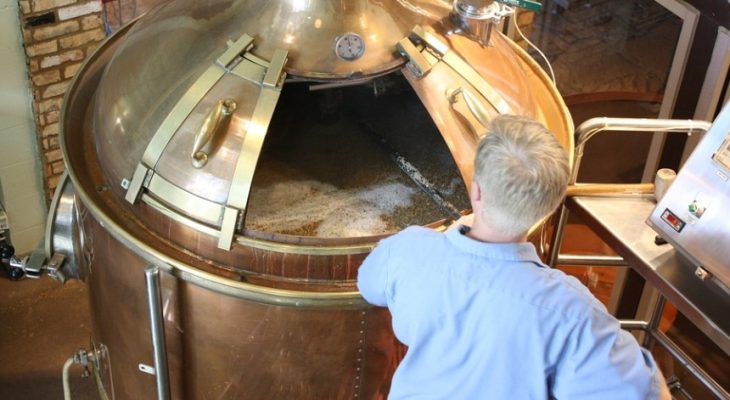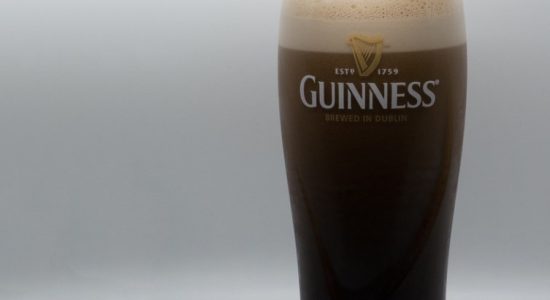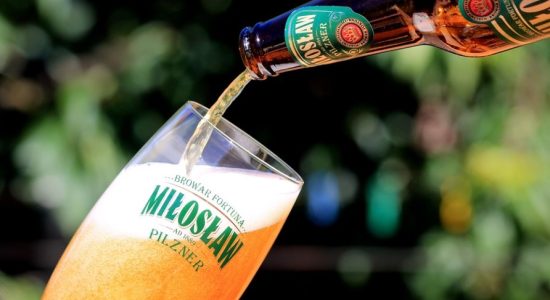Does Brewing Beer Remove the Gluten?

Gluten, a group of proteins, is present in grains like wheat and barley. These proteins can induce reactions in people with specific conditions, like celiac disease. Although beer is made with gluten-containing grains, will the brewing process remove the gluten?
Beer brewing does not remove gluten. Fermentation may slightly reduce gluten levels but does not eliminate the proteins. Thus, special beers have been made. Gluten-free beer has grains without gluten, while gluten-reduced beer has added enzymes to significantly reduce gluten levels.
Making beer with reduced or eliminated gluten levels allows people with gluten sensitivity to enjoy the drink despite their condition. Learn more of these special beers through this article.
Gluten-Free vs. Gluten-Reduced Beer
First, I must emphasize that gluten-free and gluten-reduced beer are significantly different. Thus, you have to be careful which one to offer to a gluten-sensitive person.
These are the differences between gluten-free and gluten-reduced beer:
| Gluten-Free Beer | Gluten-Reduced Beer | |
| Grains Used | Does not contain gluten | Contains gluten |
| Gluten Levels (Most countries) | Less than 20 ppm | Less than 20 ppm |
| Induced Immune Response in Blood Samples of People with Celiac | None | Yes |
Based on the table above, the most crucial difference between gluten-free and gluten-reduced beer is the immune response of people with celiac disease.
Celiac disease makes people sensitive to gluten. When their immune system reacts to the protein, it could damage the person’s small intestine, which could be painful.
A particular study tested the two beer types against the blood samples of people with celiac disease. Results showed that the samples reacted only against the gluten-reduced beer.
However, most studies state that products with gluten levels below 20 ppm are safe for people with celiac. Both gluten-free and gluten-reduced beer meet that criteria, so why was there an immune response against the latter?
The answer lies in the kind of grains used.
Grains in Gluten-Free Beer
These are the grains used to make gluten-free beer:
- Sorghum
- Buckwheat
- Millet
- Quinoa
- Rice
- Maize
- Amaranth
Because there is no gluten in these grains, there is no need for special enzymes to break down the protein.
Grains in Gluten-Reduced Beer
These are some of the grains used to make gluten-reduced beer:
- Barley (most common grain in beer brewing)
- Wheat (used in wheat beer and Hefeweizen)
- Rye
Why Does Gluten-Reduced Beer Cause an Immune Response in Celiac Blood Samples?
Special enzymes, like Clarex, are used to reduce or break down gluten. Gluten, being a protein, is a long chain of molecules.
Enzymes are like scissors that cut these chains into pieces. Thus, you’re not removing the protein–you are just cutting or reducing it.
Ideally, reducing the enzymes would prevent an immune response. However, there is no guarantee that all gluten molecules were reduced by the enzymes.
Because even the slightest amount of gluten can affect people with celiac, there is a significant chance that the unreduced or uncut gluten can trigger their immune system.
Thus, even though the gluten levels for gluten-reduced beer may be less than 20 ppm, they cannot be labeled gluten-free. There is still a chance that the cut and uncut protein parts will affect gluten-sensitive people.
Is Gluten-Free Beer Safe for Gluten-Sensitive People?
Based on the blood samples study, there is an implication that gluten-free beer is more or less safe to drink for gluten-sensitive people.
However, if you have celiac or a similar condition, still be cautious. Every person’s immune response is different.
Some gluten-sensitive people may be fine with gluten-free beer and even gluten-reduced. However, others may have a reaction to both.
Does Gluten-Free and Gluten-Reduced Beer Taste Different From Regular Beer?
Because the grains used in gluten-free beers differ from regular ones, they will taste different. Whether or not you like that difference depends on your palate and preferences.
There have been claims that gluten-reduced beer tastes better than gluten-free beer. After all, it uses similar grains to regular beer.
But since most of its gluten molecules have been reduced, there may still be a detectable change in flavor.
You can read more about beer and how you can expect it to taste through my article: “What Does Beer Taste Like? The Answer is Not Popcorn.”
Gluten-Free and Gluten-Reduced Beers
Finding gluten-free and gluten-reduced beers is challenging. They may be obscure (i.e., unknown to you), expensive, or hard to find in your local stores.
Here are some of them:
- Regatta Light Ginger Beer (available on Amazon.com). This beer is gluten-free, low carb, and made with natural ingredients. You can learn more about ginger beer through my article: “Ginger Beer » Everything About Ginger Beer & How it’s Made.”
- Asahi Dry Zero (available on Amazon.com). This world-famous Japanese beer that you probably already love also comes in a gluten-free version. However, keep in mind that this beer also contains no alcohol, so you won’t be getting a buzz from it if that’s what you’re looking for.
- Stone Delicious IPA (available on Amazon.com). This beer is not just gluten-reduced; it’s vegan-friendly too. You can expect bright and fresh citrus flavors.
When purchasing beer, always be mindful of the labels. Do not just rely on the “gluten-free,” “gluten-reduced,” or “crafted to reduce gluten labels.”
Countries have different policies surrounding beer labeling. Most of them, i.e., the US and Europe, consider gluten-free beer to have levels below 20 ppm.
However, the US is more specific as gluten-reduced beers–or those that used enzymes to reduce the proteins–cannot be labeled gluten-free, despite their indicated levels.
Meanwhile, Australia is more restrictive than the US or Europe. This country uses sensitive instruments to measure gluten levels so that only items with no detectable gluten can be labeled gluten-free.
Canada, on the other hand, doesn’t rely on measuring gluten levels. Instead, its labeling depends on the ingredients of the beer. Gluten-free beer should not have any wheat, rye, barley, or other specified grains.
While Canada’s definition may be more straightforward, it may overlook instances where beers still contain significant gluten amounts even without the specified ingredients.
Final Thoughts
Despite fermentation, beers usually contain significant amounts of gluten. If you need to avoid that protein, you may try gluten-free and gluten-reduced beers.
However, if you have celiac disease or other similar conditions, only try gluten-free beers. Gluten-reduced beers may still induce an immune response.






